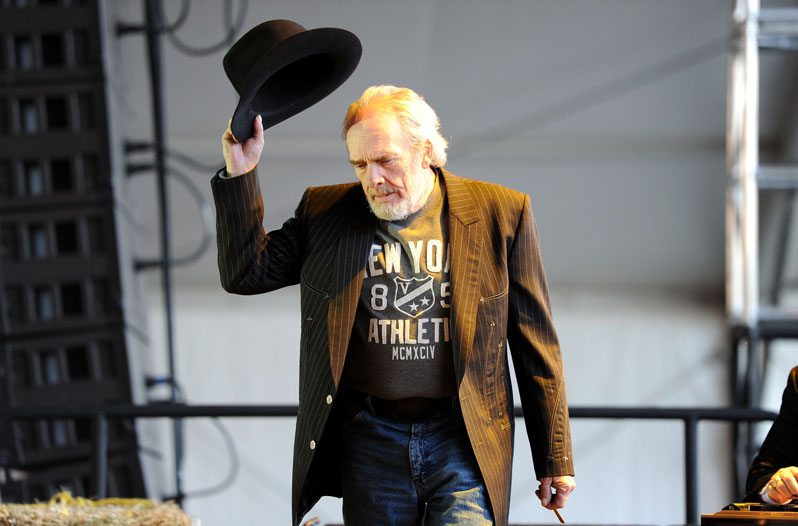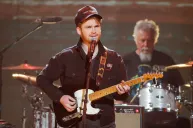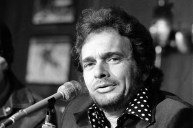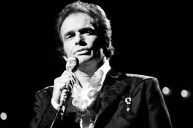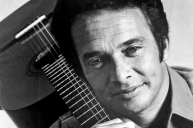On Sept. 29, 1969, Merle Haggard released his song "Okie From Muskogee." The tune went on to be one of the California native's biggest hits — and controversial — country songs ever. Even to this day, "Okie" means different things to different people. But one thing's for certain. Without "Okie From Muskogee," the Hag's career and country music's history would be completely different.
In a lot of ways, "Okie From Muskogee" ushered in a side of the 1970s pop culture seems to forget. While the late 1960s and early 1970s are synonymous with "flower power" and hippies, counter-culture movements were just as strong. They just weren't as talked about.
When "Okie From Muskogee" came out, a lot of Americans (dubbed "the silent majority") felt they finally had an anthem that represented their nuanced, simple-living patriotism. It was a wonderful time for Middle Americans, a group of people who don't smoke marijuana, don't take LSD and don't protest by burning draft cards. Before the song was even a year old, the song seemed to befuddle even its own writers.
Genesis in a Joke?
Haggard and his drummer Roy Edward Burris admittedly wrote the song as a joke, a fact that's been covered pretty well by country music historians. While driving through Oklahoma (where Haggard's family was originally from), Haggard spotted a sign reading "Muskogee, 19 miles." He woke Burris and joked, "I bet they don't smoke marijuana in Muskogee." The rest of the song came about in 15 minutes.
At least, that's one prevailing story. Haggard himself both confirmed and contradicted that story multiple times throughout his career. In 1985, Haggard said that while it started as a joke, "It only lasted about three seconds before we realized the importance of it."
He doubled down again in the late 80s, saying the song came from a place of anger at the various kinds of protests to the Vietnam War. Then, in 1990, he said he wished he hadn't written it at all. Perhaps even more eyebrow-raising, he told Ornery magazine, "What bothers me most is the people that identify with it."
But by 2010, the "Workin' Man Blues" singer changed his tune again. He told The Boot the song actually had its foundations in his stints in prison. "When I was in prison, I knew what it was like to have freedom taken away," Haggard said. He thought it was wrong that protesters were blaming soldiers who had given up their freedom in the interest of protecting their country.
He went a step further, calling himself "dumb as a rock" at the time he wrote it and saying that he began singing the tune as a snapshot of America at the time. Really, he took a rather cynical view. "I've learned the truth since I wrote that song," he told American Songwriter. "I play it now with a different projection. It's a different song now. I'm different now. I still believed in America then. I don't know that I do now."
That's a lot to take in. How do you talk about the lasting impact of a song when you can't even pin down what it means to its writer (who at one point wished he never wrote it)? That's just another part of its legacy.
It's also important to note that, while Haggard was one of country music's greatest songwriters, he was not without demons. His youth was marred in arrests, and he actually struggled mightily with drug addiction after achieving worldwide fame. He began using cocaine and marijuana heavily until quitting all drugs in 1995. In 2009 (a year before his befuddling new stance on "Okie"), he began smoking marijuana again.
But the impact of "Okie From Muskogee" transcends what it did for and to Merle Haggard. Sure, it tripled his performance fees in a year (to $10,000). It also got him invited to the White House (by Richard Nixon, no less). It confused some of his contemporaries, like Johnny Cash and Kris Kristofferson, who either refused to play it when asked or played it as a joke. In fact, before he performed it at a 1972 concert, Kristofferson said, "With apologies to our good friend Merle Haggard, who is neither a redneck or a racist, he just happens to be known for probably the only bad song he ever wrote."
Ray Wylie Hubbard wrote, "Up Against The Wall Redneck Mother" as a "hippie answer" to the song. Jerry Jeff Walker made it famous.
A Meaning of Its Own
Perhaps the biggest testament to the song's legacy is that none of that really matters. It entered the public consciousness through every pore. It was inescapable. People who loved it played it as trumpeting long-forgotten values of honor, respect, and clean living. People who hated it played it ironically to poke fun at those who loved it. Others played it because they perceived it as being written ironically.
The point is, everybody played it. It spent four weeks at number one only two months after its release and became one of the Bakersfield sound singer's only successes on the pop chart. The song spurred cover versions by some of the world's biggest acts, including The Grateful Dead and The Beach Boys.
Haggard said the first time the band played it live, soldiers stormed the stage and demanded they play it again before they left. They performed it four times in total. That was the moment he realized its message wasn't a joke to a lot of people. The "middle Americans" who have time and again been disregarded as either culture-less or rooted in too simple a culture.
It wasn't a joke to soldiers who, for the first time in American history, were seen as villains by the strangers overseas who were protesting. Some of the poor guys were spat upon when they returned from a war they were forced to go into in the first place after television spread the images of war violence far and wide. And it wasn't a joke for the Americans who saw it as wrong to cast judgment down on simple, small-town life.
Haggard also notably echoed those sentiments in several other songs throughout the period. Though some movements attempted to allocate the song as a sweeping endorsement of conservative values, Haggard's strongest suit was always about standing up for the working man. To Haggard, soldiers were some of the greatest American workers of all. That's why he also released songs like "The Fightin' Side of Me," "I Wonder If They Ever Think Of Me" and "Me And Crippled Soldiers."
That is, perhaps, why Haggard said what he said in 1990 about the "people that identify with it." Because, in metaphorical terms, he always seemed to advocate for the soldier, but was mistakenly taken as an advocate for the war. After all, Haggard often wrote and sang about tolerance, peace and progressive values such as interracial love. He wanted nothing to do with applying a song he wrote in 1969 to the "religious right" movement or any movement at all, really. He was singing about the way things were at the time. A time when young kids didn't understand what was happening with the war or if they should believe it in or not. It was also hard to even comprehend the meaning of patriotism.
Merle Haggard reinforced that sentiment in 2005 when he told Billboard the most important lesson he learned in the music industry. "Keep your opinions to yourself," Haggard said. "I think it's important that I stay neutral on politics and remain hard to understand. I don't want to be pigeonholed as conservative, liberal, independent or anything."
The 'Okie' Impact Now
"Okie From Muskogee" was hardly country music's first foray into the political spectrum. But it was the most visible, particularly because it came about at a time when country music was exploding in popularity. The song is often still wrongly referenced as an example of a music genre's inherent ties to political factions, country or otherwise.
But if anything, the song merely reinforced the fierce individuality of country music. Sure others have also been under fire, including the Dixie Chicks. They echoed a similar individuality with their controversial statements in 2003, essentially flipping the conversation that surrounded "Okie" on its head. Their hit song at the time also happened to be about a soldier who dies in Vietnam.
The Chicks' outspokenness was made of the same stuff that spurred Haggard's. And it's hard to imagine the backlash against them had country music not been so (rightly or wrongly) associated with pro-war patriotism after tunes like "Okie From Muskogee." It's important to note that in that same Billboard interview, Haggard stood up for the Chicks, saying, "These girls were against war, and only in today's times would we have enough nerve to jump on somebody like that."
But the song did forever tie country music into a sense of patriotism. America had a bit of a crisis of conscience when it realized how poorly soldiers were treated upon their return. Country music became the genre that honored and documented the struggles of soldiers. Just like Haggard came from a wonderful place in his attempt to honor and document the struggles of the blue-collar man.
And the song proved just how big the playing field really is when it comes to music. Nowadays, there are sub-genres of sub-genres, because people realize that every kind of music has an audience. "Okie" proved it. When all TV showed was anti-war protests, the song's massive success and sales (it went gold, which was rare at that time) showed how big the market for different music really was.
So while Haggard never really locked down what it meant to him, "Okie From Muskogee" became the type of song that stood independent from its creator. It meant everything to some, and nothing to others. It established country music as a cultural lightning rod and an unmistakably independent voice of American identity.
